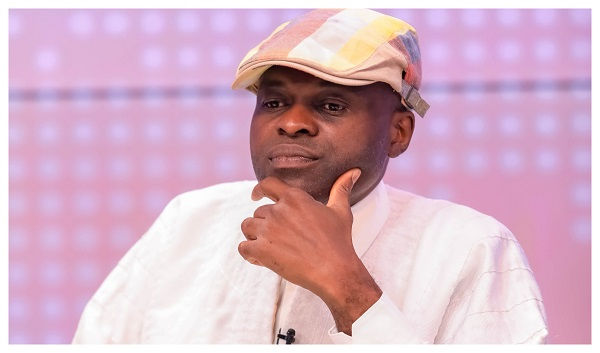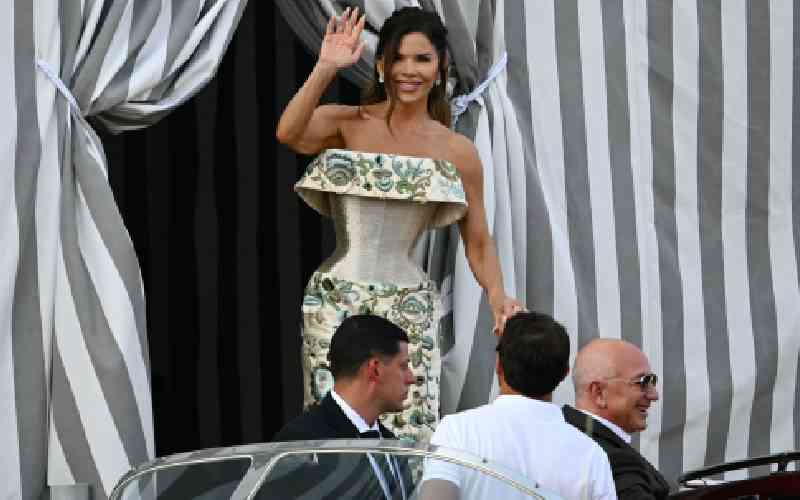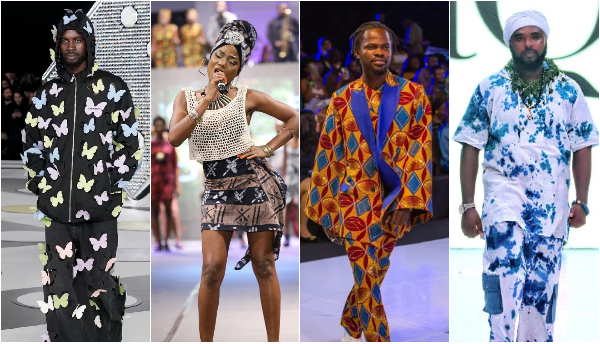'Wonderful Copenhagen!' AB Crentsil - Graphic Online
Brig. Gen. Dan Frimpong (Rtd) Opinion 6 minutes read
While his tunes are beautifully melodious, controversy has never been far from his very humorous lyrics.
Not even the sky was the limit for his fertile lyrical imagination, though sometimes in reverse gear.
Thus, his song “Atia” is about a young man who came down south from the north in search of employment. Departing from his native “pito” alcoholic beverage, he was taking in his hometown, Bolga, Atia made a switch to the more potent local gin in Kumasi, “akpeteshie”, which humorously and mimically he called “pantansi.”
Against all advice, Atia drank himself to death with “pantansi.”
While “Atia” was interesting, perhaps topping the chat of his controversial compositions as the gold medalist was/is “Moses!” Starting with an old, beautiful religious tune of the 1960s’ musician Kakaiku, he slowly moves into the world of direct sexual expletives/innuendoes.
As I listened to Moses to refresh my memory before writing this article, I could not help but laugh my heart out.
One of the numerous terms he uses is “Wonderful Copenhagen” in apparent reference to the male genitalia.
Before seeing “Wonderful Copenhagen”, my earliest contact (virtual) with Denmark was through Shakespeare’s tragedy Hamlet in secondary school in the mid-1960s.
In the play, the King of Denmark, Hamlet, is murdered by his brother, Claudius, who goes ahead to marry the Queen, his brother’s widow.
King Hamlet’s ghost then directs his son, Prince Hamlet, to avenge his death by killing his murderous brother, now king of Denmark.
It is Hamlet Junior’s lack of decisiveness to avenge his father’s death that led to the famous statement, “to be or not to be, that is the question!”
When I asked a diplomat who had lived in Denmark what it was like, the answer was, “It is a beautiful country with Wonderful Copenhagen as its capital.”
Having spent some time in Denmark in June 2025, I appreciated more the description of their city by the inhabitants themselves as “Wonderful Copenhagen.” Copenhagen is Denmark’s capital.
With a population of six million and a per capita income of US$83,454, Denmark is the tenth richest nation in the world.
Denmark’s colonial connection with Ghana is showcased by the Christiansborg Castle, Osu, which they built, and through which about 1.5 million slaves were shipped to the Americas during the Slave trade.
The castle would later become the seat of Ghana’s government.
The flat city of Copenhagen is a combination of both ancient and modern architecture, with lots of water bodies, as well as very green parks/general greenery.
During my first walk in a park with my host, Ghana’s Defence Attaché in Denmark, I was amazed at the hundreds of deer/antelopes confidently walking around, with some appearing to pose for photographs.
They reminded me of the “otwee-nkwan” (antelope-light-soup) we had in Cambodia in the early 1990s while serving with the United Nations Transitional Authority in Cambodia (UNTAC).
Bicycles are an important mode of transportation. Solar is a common source of energy, with panels all over.
An observation I made was that, unlike our situation at home, where some walls are higher than the houses they are supposed to protect, with electric triple-concertina wires on top, houses in Copenhagen have no walls or gates.
Where we have concrete walls demarcating houses, they have hedges.
It reminded me of a previous trip to Switzerland, where our host did not lock the front door when we went out.
My “Manager” and I were totally amazed at such a level of trust in fellow humans and the general security.
Everything is based on trust and integrity. So then, is the regular question asked by radio presenters, “What is wrong with us?”
Sometimes, it feels like a broken record writing the same thing over and over again... galamsey, dehumanising open defecation, corruption, hospitals without adequate staff and equipment, schools under trees, general indiscipline, etc.
With the abundant resources Ghana has, and a relatively small population, with good leadership, we can do far better than we have.
Before writing this piece, I listened to his song “Moses” again. I laughed my head off, marvelling at his creative genius.
It is said that, after he had composed and played “Moses,” AB Crentsil’s mother called him to order, reprimanding him for the unabashed sexual innuendoes of his lyrics.
He was surprised because he said, for any creative artist like the poet, writer/author, artist, painter, there should be no limit to the individual’s imagination.
After all, sculptors sculpted, showing both the male and female genitalia without any apologies.
So, why should an innocent reference in jest to the male sex organ as “Wonderful Copenhagen” unruffle anyone?
Ghana and Malaysia were the 55th and 56th countries to join the United Nations in 1957: Ghana on March 6 and Malaysia on August 31, and were, therefore, called the “twins.”
At independence in 1957, they both had a per capita income of about $ US$600. Without attempting to compare the two countries to Denmark’s over $ US$83,000, Ghana’s per capita income in 2024 was US$2,319 and Malaysia’s US$11,945.
What accounted for the huge disparity between Ghana and Malaysia, which both have about the same population of 34 million?
As it is said, “Leadership is cause, the rest is effect!” Ghana has shown far less leadership than Malaysia.
I love “Wonderful Copenhagen’s” neatness, order, mutual respect in traffic and discipline.
Why can’t we do the same? Perhaps, Prof. Agyeman Badu Akosa’s June 19, 2017, article in the Daily Graphic titled “A Code of Discipline I learnt” quoted below might help.
“Born in the Gold Coast prior to independence, I was in primary school when the Young Pioneer Movement (YPM) was founded. It was to provide a constant source of education on patriotism and civic responsibility.
The “Ten Commandments” of YPM are as follows:
• Love of country
• Discipline and obedience.
• Honesty and Morality
• Punctuality
• Protection of State property
• Reliability and secrecy
• Comradeship and Forbearance
• Love of Work
• Field craft
• Unaffectedness
• Selflessness
• Striving for faultlessness.
We were taught to love Ghana more than anything else and to ensure Ghana was prosperous.
Discipline was critical in every young person’s life. It is a must for progress.
Obedience to seniority and authority, although a component of discipline, was highlighted for emphasis.
Honesty and morality are twin virtues in the uprightness of life and we were schooled in the essence of integrity.”
Prof. Akosa summarises what Ghana needs to do… go back to basics we were taught by Osagyefo Kwame Nkrumah in the 1960s.
With the little sunlight they have in summer, Denmark and its neighbours, Sweden and Norway, have invested heavily in SOLAR! With all the sunlight we have, what are we waiting for?
Leadership, lead by example/integrity! Fellow Ghanaians, wake up!
The writer is a former CEO, African Peace Support Trainers Association
Nairobi, Kenya; Council Chairman, Family Health University,
Teshie, Accra
E-mail: [email protected]













